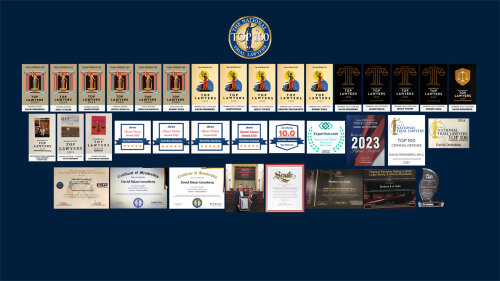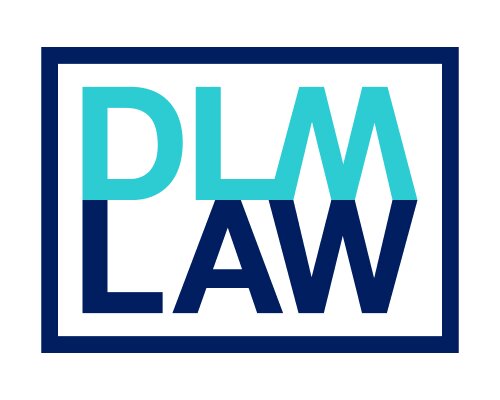Best Employer Lawyers in United States
Share your needs with us, get contacted by law firms.
Free. Takes 2 min.
Or refine your search by selecting a city:
List of the best lawyers in United States
About Employer Law in the United States
Employer law in the United States encompasses a broad range of regulations and statutes that govern the relationship between employers and employees. These laws are designed to ensure fair treatment, protect workers' rights, and provide a legal framework for businesses. Federal, state, and local laws come into play, covering areas such as employment discrimination, wages and hours, workplace safety, benefits, and workers' compensation.
Why You May Need a Lawyer
There are several scenarios where individuals or businesses may require legal assistance related to employer law. Common situations include disputes over wrongful termination, wage disputes, allegations of workplace discrimination or harassment, navigating compliance with employment laws, and drafting employment contracts. A lawyer can provide guidance and representation to ensure your rights are protected and help resolve conflicts effectively.
Local Laws Overview
Local employment laws can vary widely, adding another layer to the regulatory framework governing workplaces. Key aspects often include minimum wage rates, overtime pay requirements, anti-discrimination measures, leave entitlements, and regulations regarding hiring and firing practices. In the United States, states and even cities have the power to enact employment laws that provide greater protection than federal laws, so it is crucial to understand the specific regulations applicable in your area.
Frequently Asked Questions
What is at-will employment?
At-will employment means that an employer can terminate an employee at any time for any reason (except an illegal one) without warning, and an employee can also leave their job without reason or notice.
What constitutes workplace discrimination?
Workplace discrimination involves unfair treatment based on race, color, religion, sex, national origin, age, disability, or genetic information. Employers are prohibited from discriminating in hiring, firing, pay, job assignments, promotions, layoff, training, benefits, and any other term or condition of employment.
How do I file a complaint about workplace discrimination?
Complaints about workplace discrimination can be filed with the Equal Employment Opportunity Commission (EEOC) or a similar state agency. The complaint process typically involves filing a charge, investigation, and potentially a resolution or lawsuit.
What is the minimum wage in my state?
The minimum wage varies by state and region. Federally, the minimum wage is $7.25 per hour, but many states and cities have established higher minimum wages. It's essential to check the current rate applicable in your area.
What should be included in an employment contract?
An employment contract should detail the job title, duties, start date, salary, benefits, work location, confidentiality agreements, and termination procedures. Clear language helps prevent misunderstandings and disputes.
Are non-compete agreements enforceable?
Non-compete agreements can be enforceable depending on the state laws, the scope, duration, and geographical area covered. They must be reasonable to protect legitimate business interests without unduly restricting the employee's ability to work.
What are the rules regarding overtime pay?
Non-exempt employees must receive overtime pay for hours worked over 40 in a workweek, generally at a rate of one and a half times their regular pay. Some states have additional overtime regulations.
What are my rights regarding family and medical leave?
The Family and Medical Leave Act (FMLA) allows eligible employees to take unpaid, job-protected leave for specified family and medical reasons, such as personal or family illness, pregnancy, adoption, or foster care placement.
How can I verify if my workplace is safe?
The Occupational Safety and Health Administration (OSHA) sets and enforces standards to ensure safe and healthful working conditions. Employees have the right to request an OSHA inspection if they believe there are unsafe or unhealthy conditions.
What is wrongful termination?
Wrongful termination occurs when an employee is fired in violation of federal, state, or local laws, employment contracts, or for reasons including discrimination, retaliation, or breach of good faith and fair dealing.
Additional Resources
If you're seeking more information or legal assistance in employer matters, consider the following resources and organizations:
- U.S. Department of Labor (DOL) - offers a wealth of information on federal employment laws.
- Equal Employment Opportunity Commission (EEOC) - handles complaints of workplace discrimination.
- Occupational Safety and Health Administration (OSHA) - provides guidelines and enforcement on workplace safety.
- State Labor Offices - provide localized support and information.
- National Employment Lawyers Association (NELA) - can help you find an attorney specializing in employment law.
Next Steps
If you require legal assistance in employer-related matters, consider the following steps:
- Identify appropriate legal counsel with experience in employment law.
- Gather all relevant documentation, such as employment contracts, correspondence, and incident reports.
- Consult with a lawyer to discuss your situation and explore your options.
- Consider mediation or alternative dispute resolution if applicable.
- If necessary, proceed with filing a claim or lawsuit to seek resolution or remediation.
Lawzana helps you find the best lawyers and law firms in United States through a curated and pre-screened list of qualified legal professionals. Our platform offers rankings and detailed profiles of attorneys and law firms, allowing you to compare based on practice areas, including Employer, experience, and client feedback.
Each profile includes a description of the firm's areas of practice, client reviews, team members and partners, year of establishment, spoken languages, office locations, contact information, social media presence, and any published articles or resources. Most firms on our platform speak English and are experienced in both local and international legal matters.
Get a quote from top-rated law firms in United States — quickly, securely, and without unnecessary hassle.
Disclaimer:
The information provided on this page is for general informational purposes only and does not constitute legal advice. While we strive to ensure the accuracy and relevance of the content, legal information may change over time, and interpretations of the law can vary. You should always consult with a qualified legal professional for advice specific to your situation.
We disclaim all liability for actions taken or not taken based on the content of this page. If you believe any information is incorrect or outdated, please contact us, and we will review and update it where appropriate.
Browse employer law firms by state in United States
Refine your search by selecting a state.

















